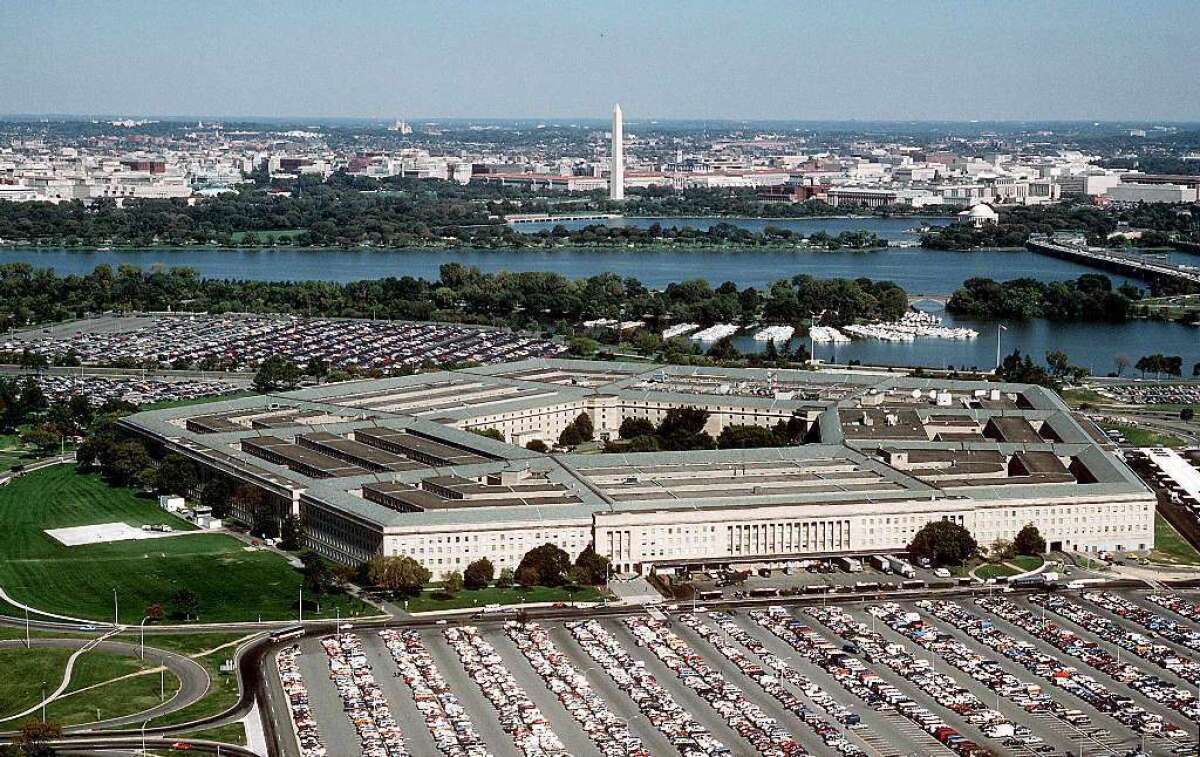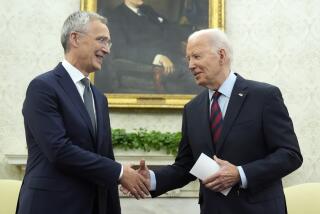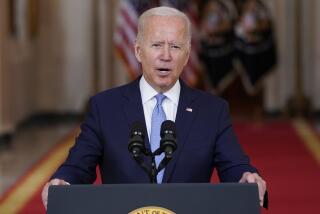Op-Ed: Time to rein in the Pentagonâs mysterious slush fund

As if monitoring the Pentagonâs enormous budget were not difficult enough, every year Congress also has to deal with a separate war budget. Known in Washington-ese as the Overseas Contingency Operations, or OCO, account, it is submitted separately. It was originally meant to cover the costs of the wars in Iraq and Afghanistan, but it has grown into an all-purpose funding mechanism for almost anything the Pentagon wants.
To make matters worse this year, the budget came in late because the Obama administration was waiting until it could determine how many U.S. troops would remain in Afghanistan after 2014. The decision to leave about 10,000 troops in place is still subject to debate. What isnât debatable is that itâs a bad idea to allow the OCO budget to remain an open-ended account that can be used to pay for the Pentagonâs pet projects or to start new wars.
Although the OCO budget request is lower than last yearâs, the administration has made no secret of its desire to keep funds available well beyond whatâs needed to wind down the U.S. presence in Afghanistan. In a mid-July congressional hearing, Deputy Secretary of Defense Robert O. Work and vice chairman of the Joint Chiefs of Staff Adm. James A. Winnefeld Jr. gave the administrationâs most detailed accounting yet of what is in its proposed fiscal year 2015 war budget. And yet, it left a great deal to the imagination.
Two large chunks of money â $11 billion for âoperations and force protectionâ in Afghanistan and $4 billion to fund the Afghan military and police forces â are clearly Afghan-war related. The same can be said for only a fraction of the remaining $43 billion in the Pentagonâs OCO request.
Nearly half of that $43 billion is earmarked âto carry out the entire array of support activities by units and forces operating in the Central Command area outside of Afghanistan, including ⌠the Arabian Gulf region.â
This is an astonishing range of potential activities and locales, which could include the building blocks for wars anywhere from Iran to Iraq to Somalia. For example, the Obama administration has indicated that it plans to pay for the current military operation in Iraq with OCO funds, despite calls from many in Congress that it seek separate authorization for this action.
So, although there is no question that some U.S. military assets in the Persian Gulf and Indian Ocean provide logistics and combat support for U.S. troops in Afghanistan, many of them do not. The Pentagon needs to come up with a much more specific justification for this part of the OCO budget. The Defense Department should also explain whether it contemplates reducing some of these supporting units and activities once the war in Afghanistan is over.
Another dubious OCO budget item â for the not insubstantial sum of $9.2 billion â is the ârepair or replacement of equipment, including small sums for equipment still returning after service in Iraq.â
The truth is that with the Army as whole scheduled to be reduced by about one-quarter in the next five years, and with a trillion dollars in new or upgraded equipment purchased during the 2000s, there is no need to repair or replace very much of what was destroyed or damaged in Iraq or Afghanistan. Besides, according to Army and Air Force officials, the Pentagon intends to leave large quantities of equipment in Afghanistan, trimming whatever transportation costs might otherwise have been required as part of pulling out of that country.
The ultimate proof that the OCO budget is threatening to become a permanent repository for unneeded projects and bad ideas is this item: the presidentâs proposed $5-billion Counterterrorism Partnerships Fund, $4 billion of which would go to the Pentagon to âsupport increased partner capacity building ⌠and increase the departmentâs flexibility in responding to emerging crises.â Itâs hard to find a broader definition than that.
This budget proposal specifies only that $500 million of that money will go to train and equip moderate members of the Syrian opposition. What will the rest of the money be spent on? And when it comes to training and equipping Syrians, how will the administration decide who is a moderate, and how will it keep U.S. arms from falling into the hands of extremist forces, as has happened in Iraq?
For once, Congress is paying attention. Members of the House Armed Services Committee from both parties have denounced the administrationâs OCO request as a slush fund. And Rep. Austin Scott (R-Ga.) and others have questioned whether the Counterterrorism Partnerships Fund will make it too easy for the president to go to war. In keeping with these concerns, Congress should scale back the war budget and demand clearer justifications for the requested money, in particular for the Counterterrorism Partnerships program. Itâs time to rein in the Pentagonâs slush fund.
William D. Hartung is the director of the Arms and Security Project at the Center for International Policy.
Follow the Opinion section on Twitter @latimesopinion
More to Read
A cure for the common opinion
Get thought-provoking perspectives with our weekly newsletter.
You may occasionally receive promotional content from the Los Angeles Times.










